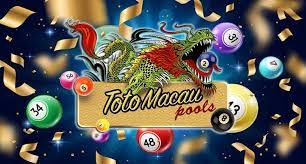Casinos have long been synonymous with glamour, alexistogel excitement, and the promise of fortune. Originating from the Italian word “casa,” meaning house, casinos have evolved from exclusive gambling dens to sprawling entertainment complexes that dot the global landscape. This article delves into the multifaceted world of casinos, exploring their history, cultural impact, and economic significance.
A Historical Journey
The history of casinos dates back to ancient times, with early forms of gambling found in civilizations such as the Greeks, Romans, and Chinese. However, the modern concept of a casino emerged in 17th-century Italy, with the Ridotto in Venice recognized as one of the earliest public gambling houses. Over the centuries, casinos spread across Europe, evolving from private clubs to public establishments offering a variety of games of chance.
In the United States, casinos took on a new life during the early 20th century, particularly in Las Vegas and Atlantic City. Las Vegas, in particular, transformed from a desert outpost into the world’s gambling capital, fueled by the legalization of gambling in Nevada in 1931. The iconic Strip in Las Vegas became synonymous with luxury resorts, extravagant shows, and round-the-clock entertainment, solidifying the city’s reputation as the ultimate destination for gamblers and tourists alike.
Casinos Today: More Than Gambling
Modern casinos are more than just places to place bets; they are integrated resorts that offer a diverse range of amenities and experiences. Beyond the casino floor, visitors can indulge in luxury accommodations, world-class dining, live entertainment, and shopping. These integrated resorts aim to cater to a wide demographic, from high-rolling gamblers to families seeking a vacation experience.
Economic Impact
The economic impact of casinos cannot be overstated. They contribute significantly to local economies through job creation, tourism revenue, and taxes. In many regions, casinos are pivotal in revitalizing areas and driving infrastructure development. The industry also supports numerous ancillary businesses, from hospitality to entertainment, further boosting economic growth.
Cultural Influence
Casinos have permeated popular culture, appearing in literature, film, and music. Movies like “Casino Royale” and “Ocean’s Eleven” romanticize the intrigue and glamour associated with casinos, while novels often depict the high-stakes drama that unfolds within their walls. Beyond fiction, casinos play a role in shaping cultural perceptions of risk-taking, luck, and the pursuit of wealth.
Regulation and Responsible Gaming
Despite their allure, casinos operate under strict regulations to ensure fairness and protect consumers. Licensing authorities enforce rules on game integrity, financial transparency, and responsible gaming practices. Measures like age restrictions, self-exclusion programs, and support for problem gambling underscore the industry’s commitment to responsible gaming.
Looking Ahead
As technology advances, casinos are embracing digital innovation through online platforms and mobile apps. Virtual reality, blockchain technology, and artificial intelligence are reshaping how games are played and experienced, offering new avenues for growth and engagement.
In conclusion, casinos remain a captivating blend of entertainment, economics, and cultural significance. From their historical roots to their modern-day allure, casinos continue to captivate millions worldwide, promising excitement, luxury, and a chance at fortune for those who step into their glittering realms.

